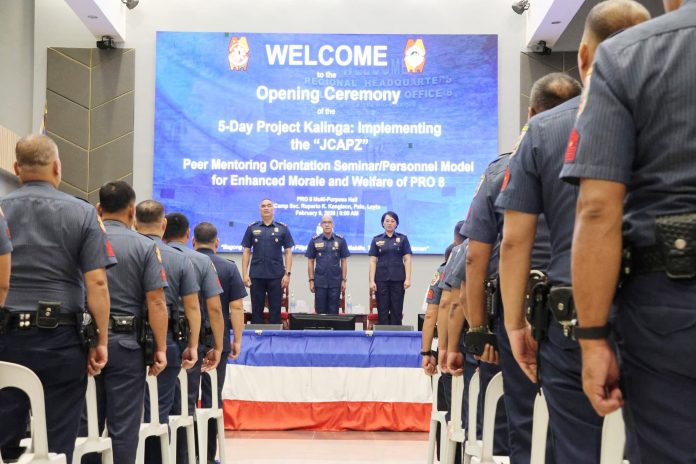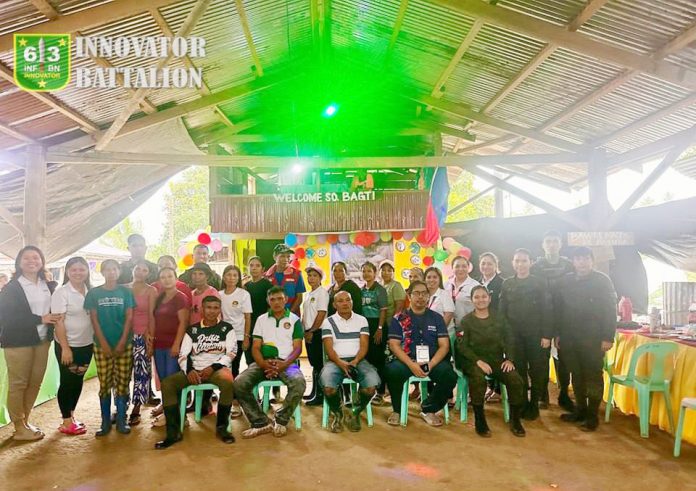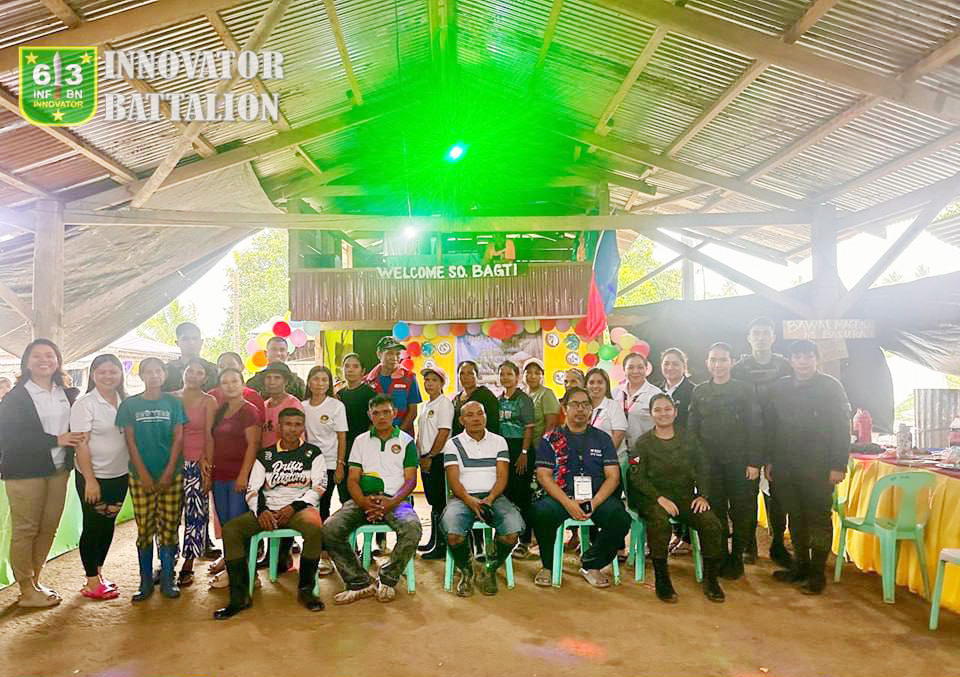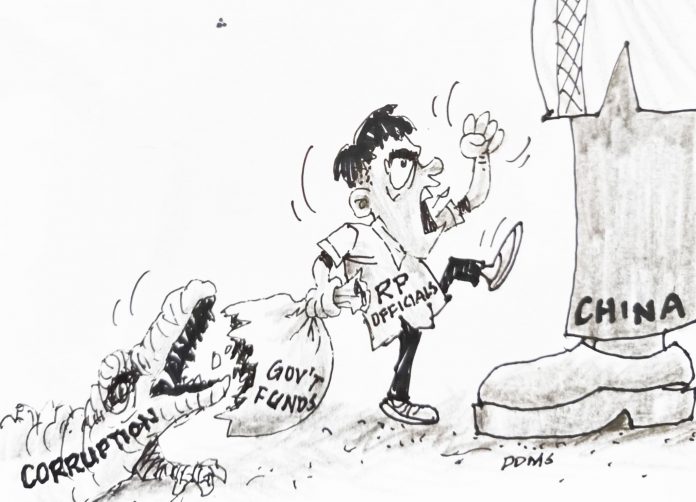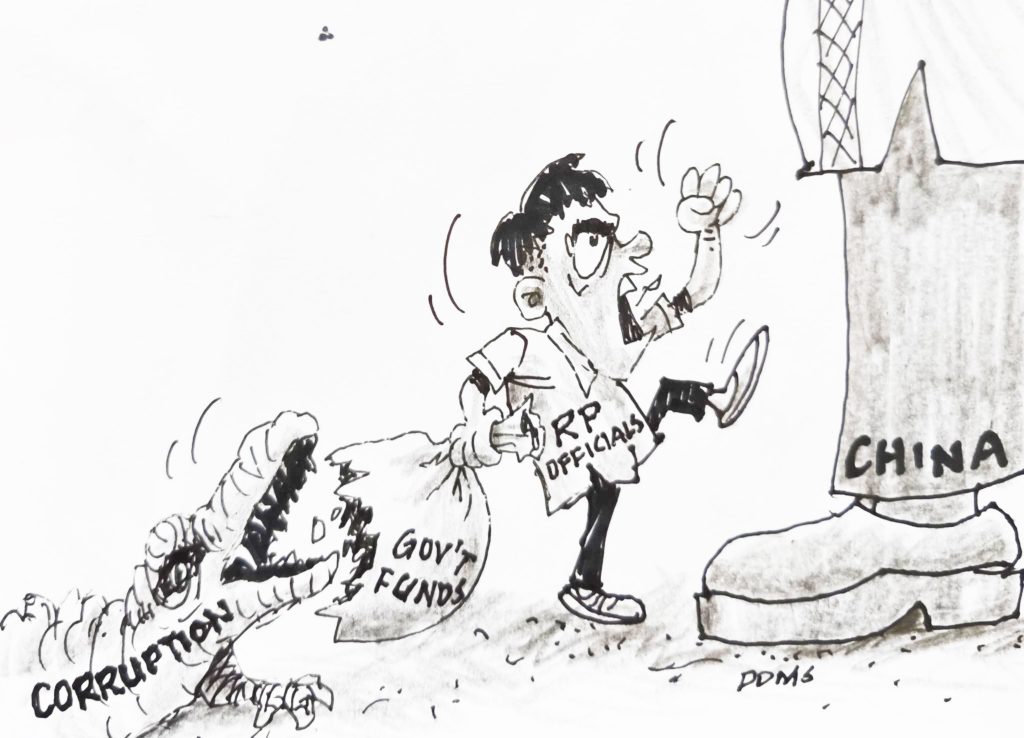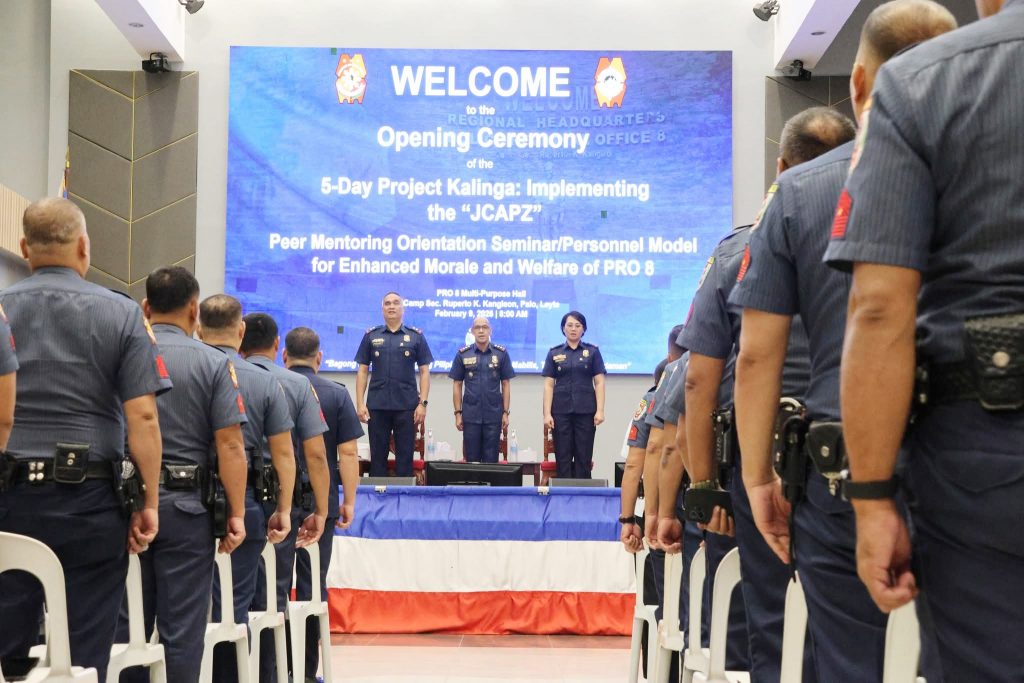
TACLOBAN CITY — In a bid to strengthen the morale and emotional well-being of police personnel, the Police Regional Office 8 (PRO-8) has launched “Project Kalinga,” a peer mentoring program designed to promote compassion and mutual support within its ranks.
The initiative formally kicked off with a five-day face-to-face Peer Mentoring Orientation Seminar held from February 9 to 13, 2026, bringing together 150 police officers from across Eastern Visayas.
Brig. Gen. Jason Capoy, regional director of PRO-8, said the program aims to ensure that police personnel feel valued, supported, and guided as they carry out their duties.
“I am confident that our personnel, guided by trained peer mentors, will continue to serve our communities with dedication and care,” Capoy said.
Participants included representatives from municipal police stations, with 15 delegates each from the police provincial offices and city police offices. Personnel from the Regional Mobile Force Battalion 8 and the PRO-8 Regional Headquarters also took part in the seminar.
According to PRO-8, Project Kalinga will be implemented in phases. These include the orientation and training of peer mentors, the establishment of peer monitoring teams, regular mentoring and monitoring sessions, as well as evaluation and feedback mechanisms. Outstanding peer mentors and teams will also be recognized.
Capoy said the project underscores the regional command’s commitment to strengthening the welfare and professional growth of its personnel.
“Project Kalinga reflects our strong commitment to the welfare, morale, and well-being of our personnel while fostering compassion, understanding, and mutual support within our ranks,” he said.
PRO-8 emphasized that a motivated and well-supported police force is essential in delivering effective and community-centered service across Eastern Visayas.
(RONALD O. REYES)

